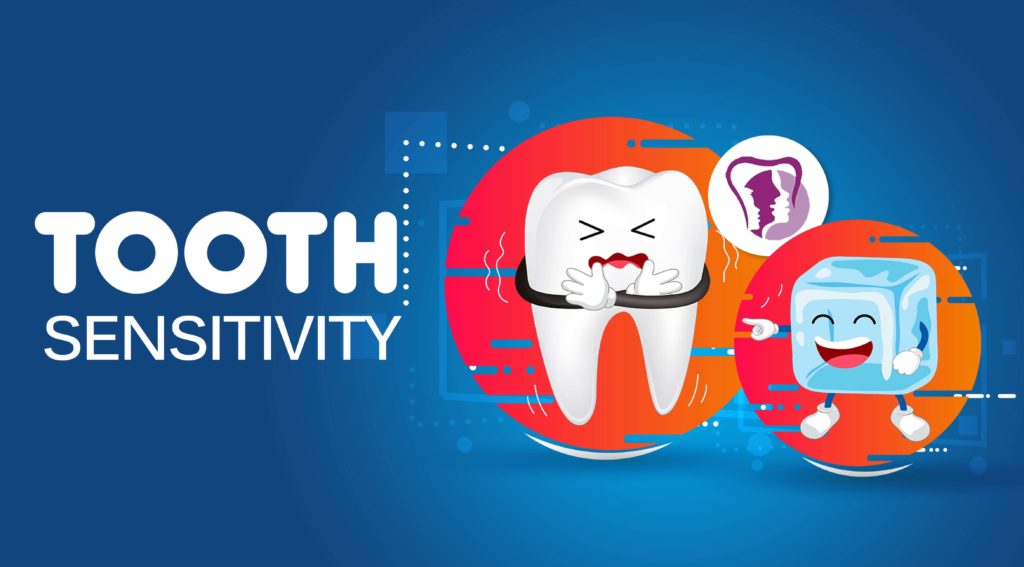Tooth Sensitivity -An Overview!!!
Have you ever felt pain or discomfort after a bite of ice cream or a spoonful of hot soup? If so, you’re not alone. While pain caused by hot or cold foods could be a sign of a cavity, it is also common in people who have sensitive teeth. Tooth sensitivity, or “dentin hypersensitivity,” is exactly what it sounds like: pain or discomfort in the teeth as a response to certain stimuli, such as hot or cold temperatures.
It may be temporary or a chronic problem, and it can affect one tooth, several teeth, or all the teeth in a single individual. It can have a number of different causes, but a change in oral hygiene regimen can treat most cases of sensitive teeth problems.

Tooth sensitivity is one of the most common complaints that a patient enters with, into a dental clinic. It is a brief sensation in your nerves due to an external stimuli on the exposed dentin, the layer beneath your hard white enamel surface.
Causes of tooth sensitivity:
- Ingestion of hard, acidic foods, Aerated drinks, etc.
- Aggressive brushing habits and using a hard bristled brush.
- Cavities involving the dentinal layer of the tooth.
- The recession of the gums in older people.
- Cold weather.
- Bruxism or night grinding.
- Sinus infection.
Prevention of tooth sensitivity:
- Using fluoridated toothpaste.
- Using a soft bristled brush.
- Abstaining from highly acidic drinks.
Treatment:
Consult a dentist to identify the cause of sensitivity.
- Restoration is the ideal choice of treatment for tooth sensitivity due to tooth decay.
- Wearing a mouth guard will help if your tooth becomes sensitive as a result of bruxism.
- If enamel erosion causes tooth sensitivity, dentists may recommend suitable interventions like fluoride therapy or gingival graft surgery.
- If these procedures are not effective, it means that the infection is deep and requires root canal therapy.

